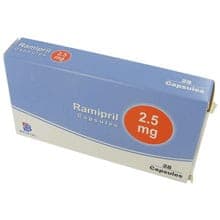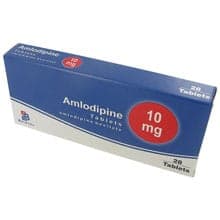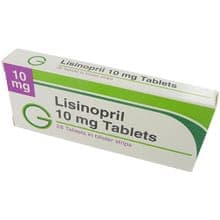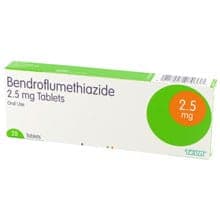Login to your account
- Prescription included
- Genuine medication
- All-inclusive service - No hidden fees
- Free next-day delivery
High Blood Pressure
Get high blood pressure medication with an online prescription
High blood pressure, also known as hypertension, is a condition in which your heart is working harder than normal. That means that the amount of pressure in your arteries is greater than it should be. While many people have high blood pressure, it can be easily controlled with a few lifestyle changes and medication.
The treatments available are prescription based and are effective in reducing high blood pressure. To purchase high blood pressure medication at euroClinix, simply enter your details to complete an online consultation with one of our doctors so they can ensure that the treatment will be suitable for you. Alternatively if you would like to learn more information on high blood pressure you can read more about it below.
On this page
What is high blood pressure? How do I know if I have high blood pressure? What are the signs and symptoms of high blood pressure? Can high blood pressure cause dizziness? What are the causes of hypertension? What are the long term effects of high blood pressure? How to prevent high blood pressure? How to treat High Blood Pressure at home? Where can I buy treatments for high blood pressure?Available Treatment(s)

- Lowers blood pressure and helps improve symptoms of heart failure
- Causes blood vessels to relax and widen
- One tablet is taken per day

- Lowers and controls blood pressure
- Significantly reduces the strain placed on the heart
- Improves blood circulation throughout the body

- Lowers blood pressure
- Helps with symptoms of heart failure
- Relaxes the blood vessels to allow for easier blood flow

- Reduces water retention
- Effectively lowers blood pressure
- Reduces pressure on the heart
What is high blood pressure?
Hypertension (commonly known as high blood pressure) is a condition in which too much pressure is being used by the heart to pump blood around the body through the blood vessels. This highly common condition affects one in three adults in the UK, with it being more common amongst men.
What makes your blood pressure high?
Normally, when the heart beats, it contracts, forcing blood to flow to the rest of the body. The vessels are elastic, so they expand and allow the blood to move through. When the vessels get narrow and stiff, they can't expand and blood pressure rises.
- High blood pressure is characterized by a systolic blood pressure reading of 140 mmHg or greater.
High blood pressure is not a disease, but a risk factor that can lead to serious problems. When high blood pressure isn't treated, it can cause further issues, such as heart failure and stroke.
How do I know if I have high blood pressure?
High blood pressure affects people of all ages and is not limited to one gender or race. Although still thought to be rare among young adults, high blood pressure is becoming more common in younger people. Hypertension among young people affects 1 in 8 adults aged between 20 and 40 years. To tell if you have high blood pressure levels, you must be checked by a doctor.
Blood pressure is measured by a medical practitioner and is a vital diagnostic tool. Based on the results of your blood pressure measurement, your GP will give you a blood pressure reading. It can be measured at home if a person has a home blood pressure monitor (sphygmomanometer).
The doctor will look at your systolic pressure and diastolic pressure. Systolic (top number) is the pressure when the heart contracts, and diastolic (bottom number) is the pressure when the heart relaxes between beats.
Blood pressure chart:
| If your blood pressure is: | You have: |
|---|---|
| Less than 90/60 mmHg | low blood pressure |
| Between 90/60 mmHg and 80/120mmHg | ideal (normal) blood pressure |
| Above 140/90 mmHg | high blood pressure |
| Above 180/120mmHg | hypertensive crisis - immediate medical attention is required |
Being aware of your symptoms can also help you take action before it's too late.
What are the signs and symptoms of high blood pressure?
Hypertension is known as the “silent killer”, as not every person with high blood pressure will experience symptoms. The most common symptoms of high blood pressure include:
- headache
- dizziness
- blurred vision
- nausea
- palpitations (awareness of one's heartbeat)
- numbness or tingling in your fingers or toes
- loss of appetite
- fatigue
- excessive sweating
- anxiety
- nosebleeds
Make sure to take your blood pressure if you're experiencing any of these issues. If you suspect you have high blood pressure, it's best to talk with your doctor.
Can high blood pressure cause dizziness?
High blood pressure can definitely cause dizziness, and the reason for this is because gravity pulls your blood down and your heart must work harder to pump it. This takes a toll on your heart and gives you a spinning sensation. If you're worried about having high blood pressure, check your blood pressure regularly and visit the doctor if you see any irregularities. If you already have high blood pressure, it is important to take your medication as prescribed to maintain your blood pressure and your overall health.
If you feel dizzy and lightheaded where you feel like you could pass out, you should go see a doctor immediately because it could be a sign of other major health issues like a heart attack or a stroke.
What are the causes of hypertension?
There are many possible causes of high blood pressure. Usually, the cause is unknown and it is a combination of factors and genetics (family history of high blood pressure), this is called essential hypertension.
You may have a genetic predisposition, or it can be caused by inactivity, type 2 diabetes, and even diet. Consuming too much sodium and sugar and not drinking enough water can contribute to high blood pressure. You can also get high blood pressure if you take illegal drugs, excess alcohol consumption, or are stressed.
One of the most common causes of high blood pressure is obesity. Excess body fat can put an enormous amount of pressure on the heart and the blood vessels that leave the heart.
Another common cause of high blood pressure is cigarette smoking. Smoking can constrict your blood vessels, leaving them less room for the blood to go through.
Underlying Medical Conditions
An individual may suffer from other health problems that can add to their high blood pressure being harder to control. High blood pressure can be caused by a variety of health conditions, or medications, this is known as secondary hypertension.
Medical reasons for high blood pressure include:
- kidney infection
- kidney disease
- diabetes
- endocrine conditions (thyroid-related disorders)
- heart disease
- pregnancy
- lupus
Taking certain prescription or over-the-counter medicines can also cause an increase in your blood pressure as a side-effect. Those include medication such as contraception, herbal supplements, steroids, antidepressants, non-steroidal anti-inflammatory drugs (NSAIDs) and certain cold medicines.
What are the long term effects of high blood pressure?
High blood pressure does not go away on its own and can become quite serious without treatment. When untreated, it often leads to vascular heart disease, arterial damage, erectile dysfunction, and other health issues.
Having high blood pressure for a long time can be very bad for your heart health and can lead to a stroke, kidney failure or heart attack. When high blood pressure goes untreated it can cause health problems in the kidneys, eyes, heart, and brain.
In the long term, treatment for high blood pressure can prevent or delay these complications. In addition, treatment for high blood pressure can help prevent hypertensive crisis that might lead to heart attacks and strokes.
It is imperative to see a GP if you feel that you may have high blood pressure and begin medication and lifestyle changes in order to treat and prevent the effects of this dangerous condition.
How to prevent high blood pressure?
Diet and exercise are a great way to reduce the risk of high blood pressure. Besides helping to keep your blood pressure in check, physical activity also has numerous other health benefits, such as reducing your risk of heart disease and maintaining a healthy weight. Eating a healthy diet is extremely important for high blood pressure prevention as well. You should try to avoid eating too much salt and your diet should be rich in fiber and low in saturated fats.
On top of that, it's also crucial that you take easy steps to lead a healthy lifestyle in order to lower your blood pressure. If you smoke, stop. Reduce your salt intake and start exercising. Weight loss is also recommended for obese individuals. These steps can be very effective and can lead to a healthier life and a lower blood pressure.
How to treat High Blood Pressure at home?
If you're suffering from high blood pressure, you can manage it with the right lifestyle changes and medication.
Diet
The first line of lifestyle modification is diet change. You can do many things -- limit carbohydrates, fats and proteins; eat six small meals a day; watch your caloric intake; cut down on alcohol and salty foods (avoid excess sodium).
Weight Loss
Weight loss is easier to attain and far more likely to be effective if your strategy includes taking a prescription medication. Prescription medications can be used to help you reach weight loss goals and maintain blood pressure control. By taking weight loss medications along with a healthy diet and regular exercise program, you can successfully lose weight and reduce high blood pressure levels that are caused by being overweight.
Worried about your weight?
Get help onlineStop Smoking
Quitting smoking is one of the best things you can do to improve your blood pressure. Individuals who have high blood pressure are often encouraged to stop smoking because it will reduce their risk of heart attack or stroke. Studies show that if you quit smoking, or seriously cut back, it will lower or stop any potential rise of blood pressure. Healthcare professionals recommend using medication to help you quit, if it's right for you.
Want to quit?
View treatmentsIn addition to lifestyle changes, if you have high blood pressure readings of 140/90 or higher you should consult with your doctor and possibly take medications to treat it. Your doctor can help you decide which medications will work best for you and your condition.
Medication for High Blood Pressure
Blood pressure medication has been used for a great number of years for people suffering from high blood pressure. There are several types of blood pressure tablets on the UK market today (including beta-blockers, diuretics, calcium channel blockers and ace inhibitors). The following treatments are prescription-based and have been found to be effective in reducing high blood pressure:
- Calcium channel blockers (such as Amlodipine)
- ACE-inhibitors (such as Lisinopril and Ramipril)
- Diuretics (such as Bendroflumethiazide)
- Beta blockers
- Alpha blockers
Understanding how to lower blood pressure with medication can be challenging, because they work in various ways. Learn more about how blood pressure medication works and the different types available in our dedicated article on the topic.
A healthcare professional has the ability to prescribe you the most effective medication for your condition, an online consultation is available to assess your suitability for these high blood pressure treatments at euroClinix.
Some medications work by relaxing the blood vessels and decreasing the amount of blood the heart needs to pump. Other medications slow down the heart rate to decrease the workload on the heart. Understanding the mechanisms of medications is important when choosing the right treatment for you.
High blood pressure treatment at home's primary goal is to reduce high blood pressure, as having high blood pressure can lead to cardiovascular disease, heart failure, and strokes.
Where can I buy treatments for high blood pressure?
It is important to find and take the correct treatment for your blood pressure. If you have been diagnosed with high blood pressure, our doctors can assess your suitability for the selected blood pressure medication based on your answers and treat you accordingly. Our consultation service is confidential and free of charge. Once a prescription has been approved, your treatment will be dispensed from our certified pharmacy with next-day delivery.
- What is high blood pressure?
- How do I know if I have high blood pressure?
- What are the signs and symptoms of high blood pressure?
- Can high blood pressure cause dizziness?
- What are the causes of hypertension?
- What are the long term effects of high blood pressure?
- How to prevent high blood pressure?
- How to treat High Blood Pressure at home?
- Where can I buy treatments for high blood pressure?
Further reading

Understanding and managing the side effects of ACE inhibi...
Reviewed by Dr. Caroline FontanaSelect
medicationFill out a short
medical formDoctor issues
prescriptionMedication sent
from pharmacy
